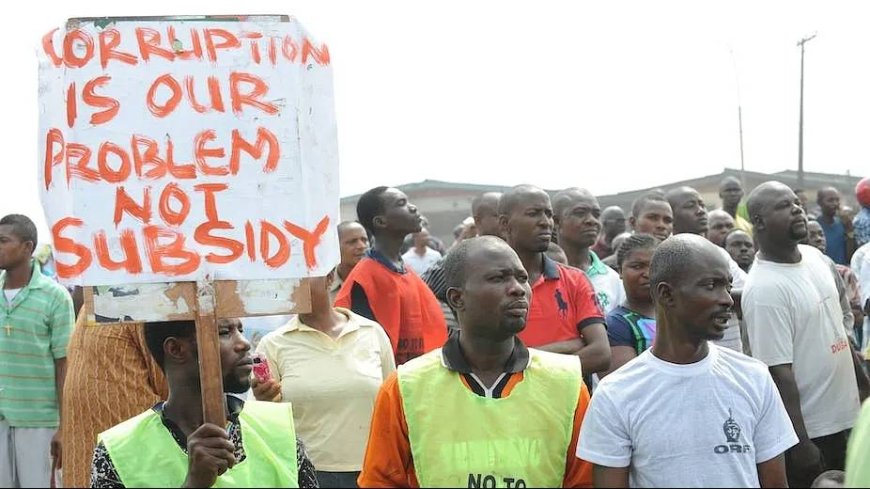Nigeria in 2024: Navigating Domestic Challenges and Foreign Adversities
Nigeria, a heavily populated nation enmeshed in a web of domestic challenges and foreign adversities, has long endured endless waves of crises. Despite its perseverance in the face of Africa’s notorious military coup d’états, this country has historically played a pivotal and influential role in West Africa, often regarded as the regional "big brother." However, the confluence of internal tensions threatens to exact a heavy toll on the African nation, home to a staggering population of 213 million.

Over the past decade, Nigeria has grappled with an array of pressing crises. From civil strife and environmental concerns to economic hardships and ethnic conflicts, these afflictions cast an ominous shadow upon the nation. Yet, amidst this tumultuous backdrop, it is the security crisis instigated by the notorious Boko Haram terrorist group and the lack of political legitimacy of the new government that loom most prominently.
Although Boko Haram, dubbed the "ISIS of Africa," has witnessed a decline in its activities in recent years, it still poses a formidable threat to Nigeria's national security, perpetrating acts of destruction and indiscriminate violence in the areas near Lake Chad. The Nigerian military has endeavored to combat this menace, albeit with limited success in eradicating it entirely.
Parallel to this security crisis, Nigeria grapples with the weighty issue of its new political administration. Traditionally, Nigeria has adhered to a rotational system whereby Muslim and Christian leaders alternate in power, fostering national unity within this religiously fragile nation.
However, the 2023 elections deviated from this norm, resulting in the installation of yet another Muslim-led government, with President Bola Ahmed Tinubu handpicking his vice president from his own party. This departure from established political tradition engendered a fractious political climate, culminating in the weakest electoral mandate in Nigeria's history, with Tinubu securing a mere 30% of the votes.
The international community eagerly awaits the sociopolitical remedies of the Nigerian government as it grapples with multifaceted challenges. Beyond implementing constructive measures in the realms of economy and domestic politics, Nigeria must also navigate its interactions with major powers on the global stage. The critical role played by superpowers in safeguarding their interests within African nations remains an open secret. The Nigerian political elite recognizes that forging close and constructive alliances with influential nations such as Russia and China is indispensable for advancing their national aspirations. China, a significant economic investor in Nigeria, emerges as a valuable partner in advancing the country's ambitious railway program. Moreover, Beijing could serve as a dependable alternative military partner for Nigeria. Recognizing the strategic significance of its geographical position, the Nigerian government strives for extensive cooperation with China and Russia.
On the other hand, as the United States seeks a more substantial role in Nigeria, it is not surprising that Washington has pledged military aid to Nigeria since 2016, underpinning its escalating engagement with the new government in Abuja.
However, beyond mere military cooperation, the United States appears intent on exerting economic hegemony while marginalizing China's influence within Nigeria. Consequently, it is not inconceivable that should the United States fail to sway the Nigerian government through conventional means, it could resort to leveraging human rights as a tool to apply political pressures. According to observers, the extent to which the United States and Nigeria can forge a mutual understanding on bilateral issues remains uncertain, leaving room for alternative approaches should diplomacy falter.
Accompanying these great power dynamics, the Nigerian government has the expectation of resolving deep-seated ecological problems. The pressing issue of curbing crude oil leakages in the Niger Delta stands as a prominent concern for the Nigerian government.
The government in Abuja claims to espouse policies towards ameliorating environmental crises, fostering economic growth, and quelling civil unrest. Nonetheless, the authentic gauge of their dedication resides in the transformation of these words into tangible actions. Failure on the part of the government to fulfill these assurances would undoubtedly cast a foreboding cloud over the nation, potentially leading to the disintegration of social order and the eruption of a full-blown civil war.
As Nigeria treads into 2024's treacherous waters, the world watches with a mix of anticipation and apprehension. The Nigerian conundrum, a tapestry woven with crises and complexities, demands a deft response from its leaders. Only time will reveal the trajectory of this great nation, whether it triumphs over its challenges or succumbs to the weight of Washington's destructive meddling.












































